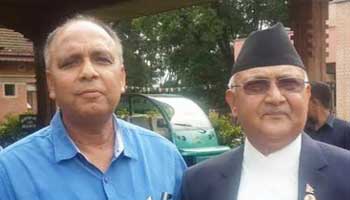This month our neighbour and the Himalyan Kingdom Nepal is celebrating its annual National Co-operative Day, recognising the three million people affiliated with over 19,000 co-operatives around the country.
Nepal has a long culture of informal community co-operatives, particularly in savings and credit associations (known as dhikuti) and in agriculture.
Earlier, Khadga Prasad Sharma Oli who was elected as the new prime minister of the Himalayan kingdom talked to Indian Cooperative detailing his vision of the role cooperative movement has to play in the affairs of the country.
It was amazing to see his faith in the cooperative movement. K P Sharma Oli believes that if a poor country has to develop it has to adopt the cooperative model of development. It is inclusive and encompasses the last man on the fringe of the economic scale, he feels.
Talking to Indian Cooperative Oli was categorical” there are three ways to develop the economy-one by the government initiative, second by the private enterprises and third by the cooperative method.”
Once our govt comes into being we would make cooperative as one of the important tools for developing our nation, Oli added
Earlier, Oli had seen how cooperatives of the world descended on Nepal to help the quake victims. From ICA to IFFCO- all had lent a helping hand. While the ICA Regional Director Balu Aiyer paid a visit touring the quake affected areas, IFFCO MD Dr US Awasthi packed off truck loads of relief material by calling an emergency meeting at its headquarters in Delhi.
The first Co-operative Act was enacted by the
Today the co-operative sector is well-established as one of the three pillars for national development. Co-op societies operate across sectors as diverse as saving and credit, arts and crafts, dairy, agriculture, bee-keeping and energy.
-with inputs from Co-op News
